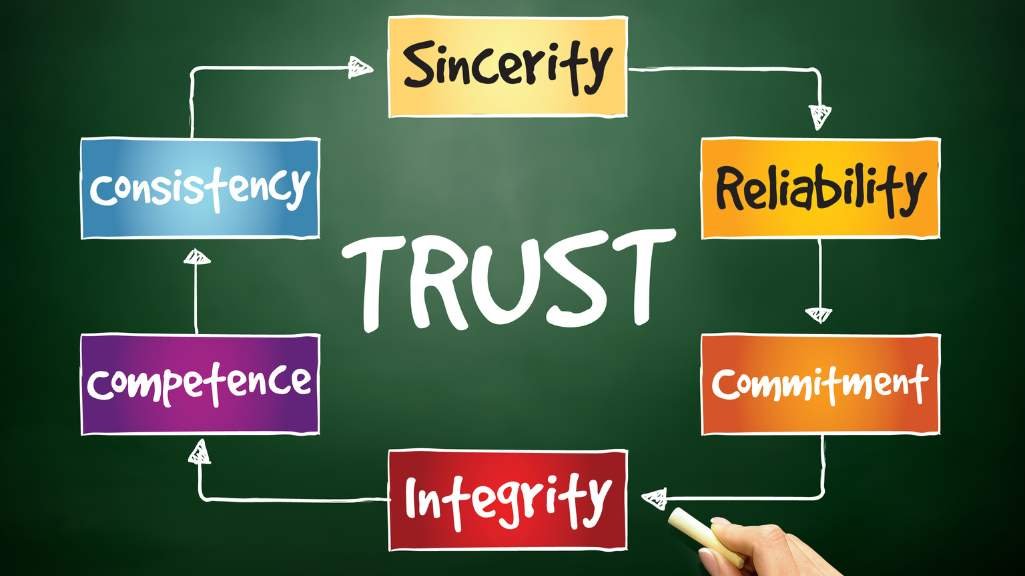The Importance of Trust in the Workplace: Building and Maintaining
Swati Mandana
. 3 min read
Trust is a crucial component of a healthy workplace environment. It plays a significant role in shaping employee engagement, job satisfaction, and overall company success. Additionally, fostering open and transparent communication channels is essential. Platforms like omegle chat, which allows for anonymous and random conversations, can be utilized within organizations to encourage open dialogue, honest feedback, and the sharing of diverse perspectives. By implementing these practices, employers and managers can create a culture of trust that fosters collaboration, productivity, and job satisfaction among their employees.

Why is it So Important to Trust Each Other at Work?
Let's take a step back and take a look at some of the research that's been done on the subject before moving on to discuss why everyone probably has an intuitive understanding of why trust is important, both in general and in the workplace. According to the findings of the 2021 Edelman Trust Barometer Special Report, 32 percent of people have either already left their current job or want to leave their current job because they do not trust the competence of their leadership.
How to Establish and Maintain Trust in the Workplace?
1. Try to Speak Less and Listen More
Your staff members are all unique individuals, each with their own set of ideas and points of view. Invite them to share their thoughts, and when they do, listen to them with full attention. This is the basis for healthy relationships in the workplace that are built on trust and an understanding of each other's perspectives. Participating in active listening training is a smart move to make if you want to improve your listening abilities.
2. Engage in Fruitful Exchange of Ideas
A simple misunderstanding can quickly erode someone's trust in you. You should make it a priority to communicate in a way that leaves no room for misunderstanding what you mean. During a conversation, if there is something that you aren't sure about, you should ask questions to clarify. When it comes to effective communication, listening is on par with speaking in terms of its significance.
3. Be Vulnerable
Being honest about how you feel and displaying a range of feelings can both contribute to the development of trust. It demonstrates both your concern and the fact that you are a person in your own right. If something has upset you or caused you stress at work, don't be afraid to let your coworkers know about it. Regarding this particular matter, extreme caution is required. You shouldn't go telling all of your coworkers the excessively personal details about each other.
3. Be Honest at All Times
This one is not too difficult to understand. However, despite how obvious it may seem, dishonesty is actually quite simple to slip into. When a coworker asks if you followed up with that email that you completely forgot about, what do you say to them? You could tell a lie, say yes, and carry it out right at this very second. You could also admit that you completely forgot to do it but that you will do it right now.
4. Moral and Responsible Leadership
In the end, leadership and management are the ones who are responsible for carrying out and upholding these trust-building practices. It is possible for subordinates to have lower levels of performance engagement at work and, worst case scenario, become uncertain about their job security when leaders are not trusted or do not foster psychological safety.
5. Give employees an honest timeline of what they can expect from the company
Your staff members have a right to be informed about the future of their engagement at the workplace. Make sure to give them a timeline of the various outcomes that could occur in order to simplify this process. Even though you want your employees to be honest with you, the activities you choose for employee engagement should focus on helping them improve their skills and grow professionally.
Conclusion
In conclusion, trust is a critical component of a healthy workplace environment that can significantly impact employee engagement, job satisfaction, and company success. Research shows that employees who do not trust their leadership are more likely to leave their jobs. Building and maintaining trust requires practices such as active listening, effective communication, vulnerability, honesty, and moral leadership. When employees feel trusted, they are more likely to be productive, innovative, and committed to their work, contributing to the overall success of the organization.
More Stories from
Embracing the Remote Work Revolution: Pros and Cons for Businesses and Employees
This article explores the significant growth of remote work over the past decade, driven by technological advancements and changing work cultures.
Common Challenges Facing Small Businesses: Overcoming Obstacles to Success
This article discusses the common challenges that small businesses face in today's economic and social environment.
Unlocking Business Growth: Harness the Power of Web Solutions
Embrace the power of the internet to unlock your business's true potential and propel it towards unprecedented growth.
A Comprehensive Guide to Performance Testing: Stages, Metrics, and Tools
It explores the importance of performance testing in the development lifecycle, the types of performance testing, and the metrics used to measure performance.
Effective Marketing Techniques for Small Businesses on a Tight Budget
This article discusses effective marketing techniques for small businesses with limited budgets.






.png?width=40&aspect_ratio=1:1)



.png?width=40&aspect_ratio=1:1)
